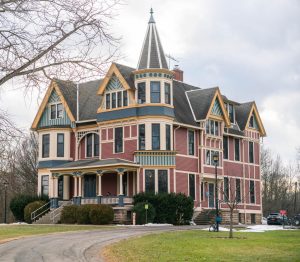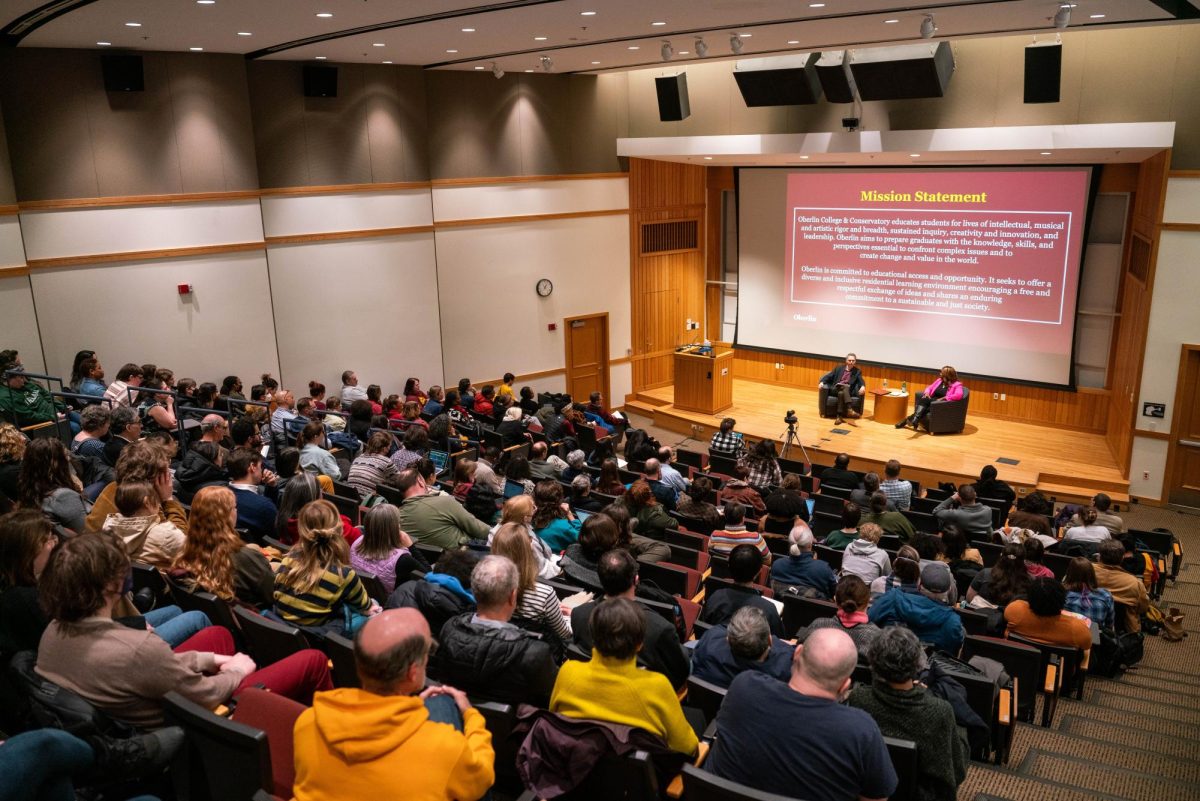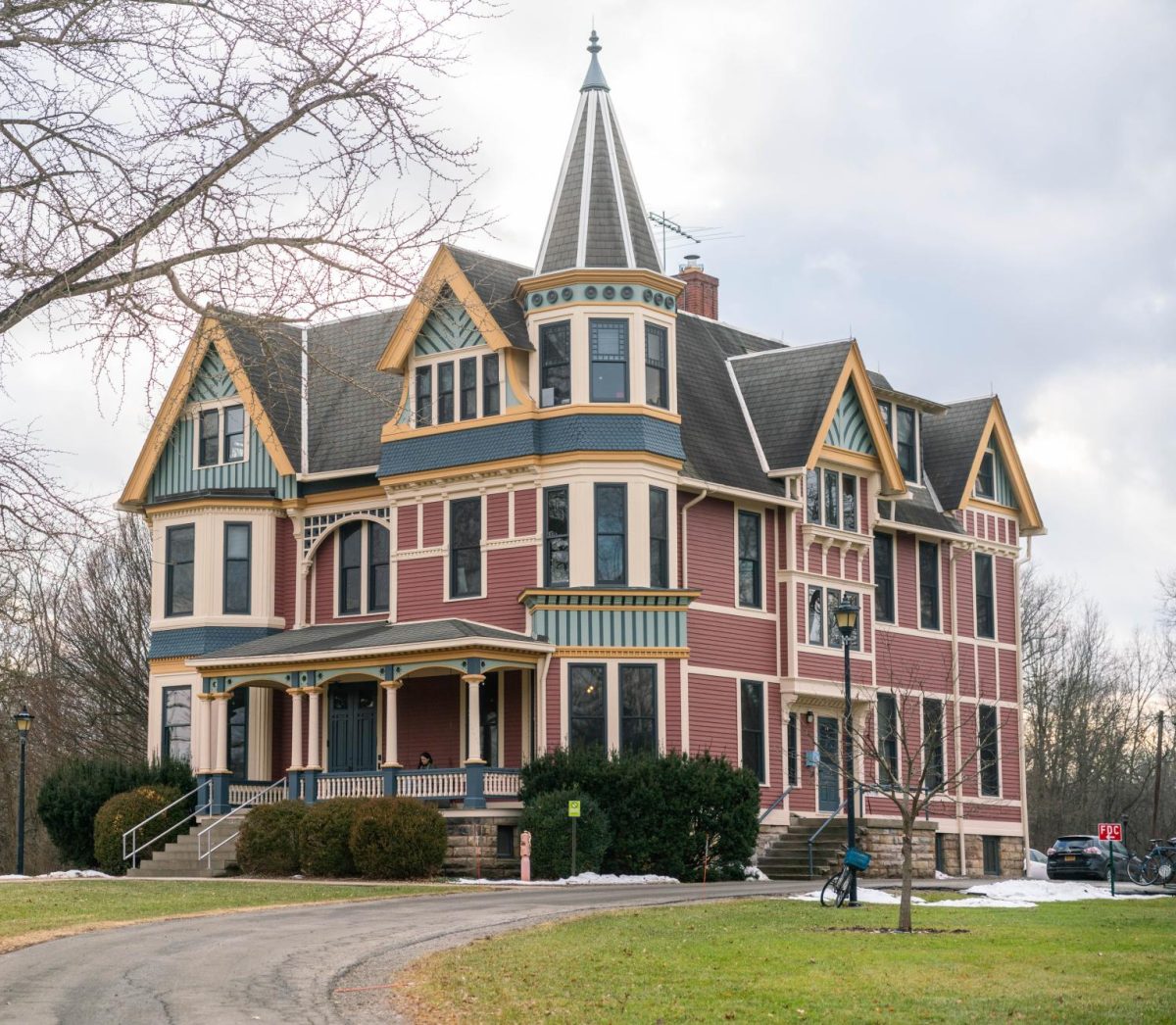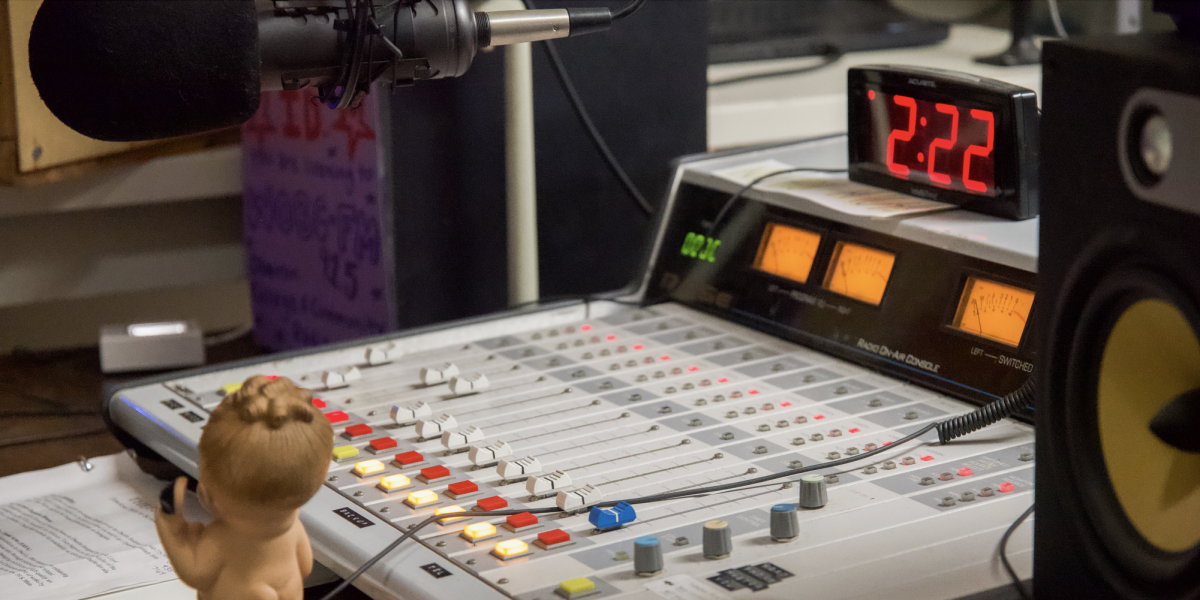Hundred Waters Electrifies Crowd at ’Sco
October 3, 2014
Digital folk band Hundred Waters dominated last Thursday night’s double booking at the ’Sco, outshining Mount Eerie, the lo-fi indie band led by guitarist Phil Elverum. The poster advertising the event suggested that Mount Eerie would be the main event, though the band’s performance served as an unmemorable opening act to the superior Hundred Waters show.
Phil Elverum, Mount Eerie’s frontman and a legend in the lo-fi scene, strode onstage alongside his unassuming guitarist before a handful of observers. With Elverum’s half-closed eyes gazing downwards, the front row of the audience stood motionless, seemingly hypnotized by his monotonous plucking of guitar strings.
The duo’s music lacked any sense of dynamics, rarely deviating from a single chord as Elverum toyed with vocal melodies. Elverum’s pleasant yet subdued vocal tones bled into his sustained instrumentals; his songs sounded like they were running on a treadmill. Many songs ended unexpectedly, and the audience, seemingly unimpressed with the performance, took to chatting amid the band’s quiet droning.
Elverum, taking offense to the crowd’s indifference, said, “If you’re having a convo, just chill for three songs.” Silence ensued, as if a teacher had just reprimanded their students for having a side conversation. Irrationally annoyed, Elverum tweeted the following day: “College: fake castles for children to stink up.” It appears that Eerie’s subsequent concert at Kenyon College featured a similar flop, after which Elverum tweeted: “Tomorrow will be a big final Mount Eerie concert, one of many retirements. Chilling for a while.” At least Elverum seemed to realize the apparent need for change. Hundred Waters came to Oberlin on the heels of its second well-received LP, The Moon Rang Like a Bell, released on Skrillex’s OWSLA record label. A somewhat less poppy version of the Canadian electronic music duo Purity Ring, Hundred Waters’s sound is considered “digital folk.”
In their first song, the band sampled front-woman Nicole Miglis’s atmospheric voice repeating the words “I wish you” in a continuous stream of sound. Underneath the layer of sound containing her voice, the synth triggered muffled explosion-like hits, transitioning from 16th-note triplets to half notes, which exemplified the group’s endless commitment to syncopation. The band’s tight rhythmic instrumentals thatched a pillow-like bed on which to lay Miglis’s vocal track.
The song seamlessly transitioned from Miglis’s vocal sample to her live voice when she finally finished her thought: “I wish you would see what I see.” The introduction of live vocals launched the band’s drummer, Zach Tetreault, into a stopstart rhythm somehow conducive to the song’s flow.
Tetreault has perfected making nontraditional rhythmic patterns feel accessible; his successful blending of electronic and acoustic sounds allowed for a range of timbres rarely heard in today’s live performances.
The band’s visuals, which included a colorful light show, were synced with the audible component; the lighting effects almost functioned as an additional instrument, accentuating the growth and contraction of rhythmic and melodic themes.
The band embarked upon a demanding two-month world tour of Europe and the U.S. days after its ’Sco appearance, which meant that Obies likely received the results of a highly practiced routine. The crowd found itself enraptured by an extravagant light show Hundred Waters would soon be showing off in European clubs and at double bookings in New York City and Washington, D.C.; one might only imagine what Mount Eerie’s performers were thinking as they watched Hundred Waters play its set.
Maybe Mount Eerie’s own set would have gone over better had its show been booked individually at the Cat in the Cream, but Hundred Waters was the night’s clear winner.





















